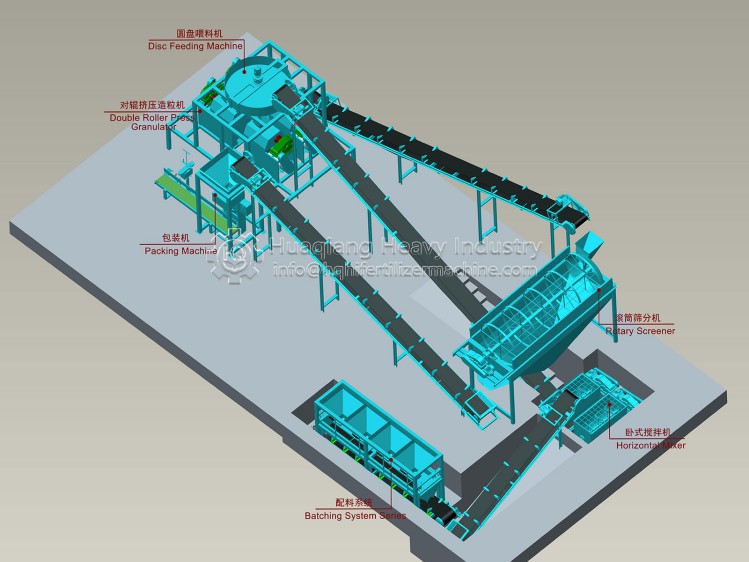What are the applications of organic fertilizer granulators in the field of environmental protection?
The application of organic fertilizer granulators in the field of environmental protection mainly focuses on the following aspects:
1. Urban kitchen waste treatment: With the acceleration of urbanization, the treatment of kitchen waste has become a major challenge. The organic fertilizer granulator can convert kitchen waste into organic fertilizer, achieve the resource utilization of waste, and reduce the environmental problems caused by landfill and incineration.
2. Resource utilization of agricultural waste: Agricultural waste such as crop straw and livestock manure can be processed by organic fertilizer granulators, which not only reduces environmental pollution but also improves soil fertility and promotes circular agriculture..jpg)
3. Urban greening and garden maintenance: Organic fertilizers produced by organic fertilizer granulators can be used for soil improvement and plant maintenance in urban parks, green belts, golf courses, and other places, reducing the use of chemical fertilizers and promoting ecological environment improvement.
4. Soil remediation and ecological restoration: Applying organic fertilizers to polluted or degraded soil can promote the activity of soil microorganisms, help repair soil structure, and restore ecosystem balance.
5. Water resource protection: Organic fertilizer granulators reduce non-point source pollution caused by agricultural waste entering water bodies while treating them, which is of great significance for protecting water resources and ecological environment.
6. Reducing greenhouse gas emissions: The application of organic fertilizers can reduce the use of chemical fertilizers, thereby reducing greenhouse gas emissions in agricultural production processes and having a positive effect on addressing climate change.
Through these applications, organic fertilizer granulators not only contribute to environmental protection and resource recycling, but also promote the development of green agriculture and sustainable urbanization. With the advancement of technology and the improvement of environmental awareness, the application of organic fertilizer granulators in the field of environmental protection will be more extensive and in-depth.
.jpg)
.jpg)

.jpg)
.jpg)
.jpg)
.jpg)

